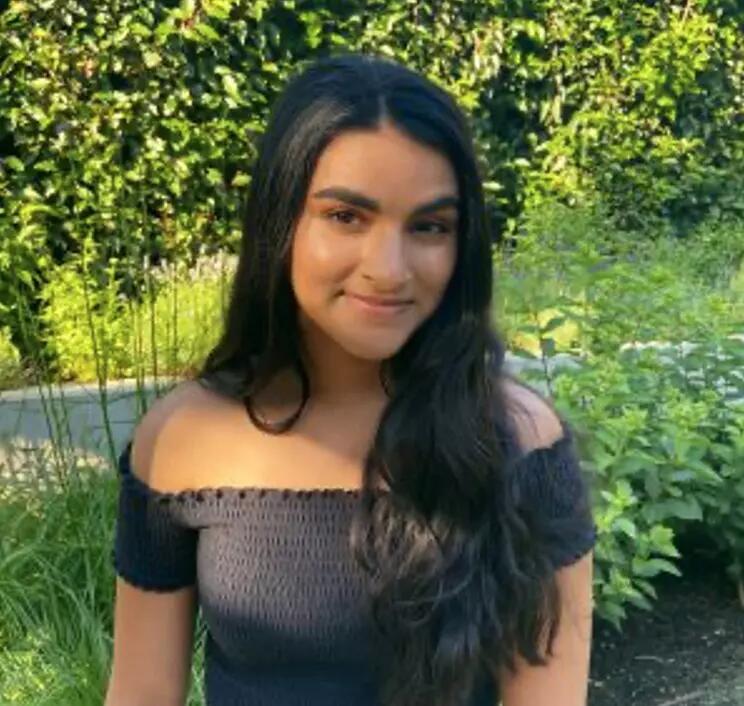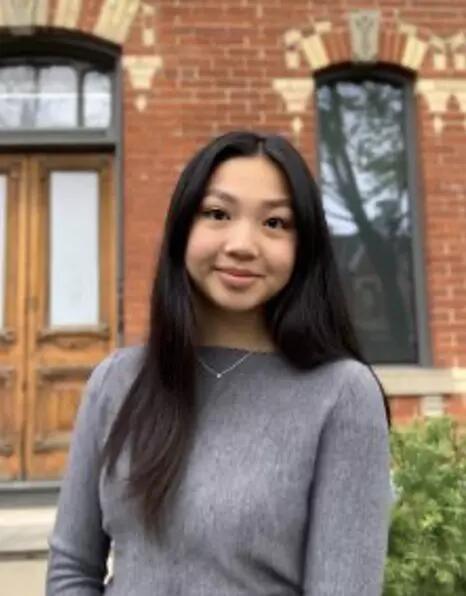During the spring semester of PCJ499, Peace, Conflict and Justice (PCJ) students interned with The Mosaic Institute, a think-and-do tank that focuses on pluralism and reducing conflict through research and programming. Read on to learn about their roles and experience supporting Mosaic’s mission!
Neha Dhaliwal
April 26, 2021

This past semester, I worked as a Research Intern at The Mosaic Institute through PCJ499, on a project to commemorate the 50th anniversary of Canada’s multiculturalism policy. I was inspired to participate in this placement after taking RLG308: Religion, Migration, and City Spaces last semester. This course explored how religious immigrant communities find belonging in cities, and how they shape and are shaped by urban landscapes. As a second-generation immigrant, I felt a deep and personal connection to this topic. I found it fascinating how religious and cultural practices could act as a bridge between immigrant communities and their place of origin, creating platforms for these groups to unite. As a PCJ student, I immediately drew connections between these processes and the role of governance in promoting the rights of immigrant groups to engage in these practices. By working on this project, I was able to develop my research skills and build upon my background in diaspora and multiculturalism.
Working alongside two other PCJ interns, I conducted a comparative analysis of multiculturalism policy frameworks in different countries to produce a comprehensive global study. This included researching the constitutional protections afforded to minorities, practices such as affirmative action, whether multiculturalism is recognized as a key tool for integration, and ratification of international treaties on cultural diversity. We produced infographics for all 18 countries to represent the data we had collected in a more accessible, digestible, and visually appealing format. This included condensing the categories of analysis to provide a general overview of the policy frameworks in each state.
Through this placement, I learned a lot about the challenges of implementing effective multicultural policies. While the scope of our project involved assessing the policies only, I came across a lot of information about how productive they had been in practice. I was able to see the difference between policy and practice, and the gaps between government-led and people-led movements for cultural issues. By conducting this research, I was able to better understand the way policy does not always translate to the lived experiences of citizens and residents. This issue is critical to peace, conflict, and justice studies, as it demonstrates some of the major challenges to establishing positive and sustainable peace. It requires a re-definition of peace away from simply the absence of conflict, and towards decentralization of white and Western perspectives.
Overall, I feel that I gained so much through this internship placement. This experience affirmed my passion for research and for the field of migration policy, which I intend to pursue at the graduate level. The PCJ499 placements are a fantastic opportunity to try out different areas of the non-profit sector. Most of all, it can help students envision their role in the world by providing an avenue to apply knowledge learned in the PCJ program to meaningful work.
Shreya Vohra
April 26, 2021

Taking place within the context of a pandemic, my placement with The Mosaic Institute was my first online internship. Despite the strangeness of the virtual format, it was a thoroughly enriching and insightful experience, thanks to my PCJ teammates, my supervisor and the very welcoming team at Mosaic! I joined Mosaic as a Research and Programs Intern to explore the existence and implications of multiculturalism across the world and the efforts made by state governments to protect and encourage pluralism. Building on the research previously conducted by our peers, we engaged in a comparative analysis of the multiculturalism policies, constitutional protections, domestic-legal provisions, affirmative action policies, and international commitments of six countries (one per continent, barring Antarctica). We then developed infographics to present the data that had been collected on these six countries and 12 others previously researched in a manner that was accessible and interesting to read for the general public. This research project was conducted in anticipation of the 50th anniversary of Canada’s multiculturalism policy, the first policy of its kind.
Working with government documents, reports, and covenants has improved my skills in conducting open-ended research and accessing government archives. Similar to the concepts and case studies that we examine in PCJ, our Mosaic project was academically and publicly relevant with huge potential for societal implementation. I also assisted The Mosaic Institute with moderating a discussion session to collect feedback about the funding being dispersed through the Ontario government’s Anti-Racism Directorate. By speaking with community leaders and changemakers, I was able to better understand community needs, as well as the public-oriented work being done by think-and-do tanks such as Mosaic and how the non-governmental sector is critical for supporting government policies and ensuring effective implementation.
My biggest takeaway was the in-depth analysis of the fact that while several countries have established constitutional and legal protections for minority rights and have acceded to international treaties, this has been without proper domestic implementation of the same. It was also my first time conducting research as part of a team. I am grateful for my fellow PCJ teammates, Cameron and Neha for their fresh ideas and constant support; I am also thankful for all the guidance, feedback, and insights that our supervisor offered to us throughout this placement. This experience wouldn’t have been the same without them.
The PCJ program has allowed me to study ethnic and religious conflicts and the political, social, and economic factors that drive them. Our research for Mosaic has affirmed my interest in studying such conflicts and examining the role of government and community agencies in preventing (or promoting) inter-group conflict.
As the term comes to an end, I find myself reminiscing about the progress I have made personally and professionally through this placement and the many ways in which it will support my future endeavors. I would highly encourage my fellow PCJ peers to participate in the many experiential learning opportunities offered by the PCJ program and hope that their experience is as illuminating as mine was!
Astrid Ling

Last semester, I had the opportunity to intern at The Mosaic Institute – a think-and-do tank dedicated to dialogue, pluralism and conflict resolution. For three months, I researched multiculturalism policies around the world in anticipation of the 50th anniversary of Canada’s multiculturalism policy this year. Although I gained a lot of specific policy knowledge, I most enjoyed working with my research partner and our supervisor and getting to know Mosaic’s work from the inside out.
Our main task was to comparatively analyze multiculturalism and diversity policies among different nations. We limited our scope to twelve countries, two per habitable continent, and assembled our criteria based on Canada’s trailblazing policy, examining factors like constitutional protections, affirmative action policies, civil society initiatives and international commitments.
Each of the countries’ policies are fascinating in their own right – influenced by their unique history, geographic location, immigration patterns and ethnic makeup, among other factors. I found it most interesting to learn about the groups that were targeted by diversity protections and the history behind their marginalization.
Having learned about different theories of conflict in PCJ260, I got to explore specific examples through my research. A memorable example is the tension between Malaysia’s three main ethnic groups and the way it plays out in their economic sphere.
On the other side of these issues, we explored the policies that aim to remedy them, contemplating policy as a tool for peace and justice. Although we were focused on policy goals rather than monitoring compliance, there were clear patterns among the different approaches. While some policies were ambitious, others could be described as reactionary and even reluctant. We also saw patterns regarding the actors leading diversity promotion efforts and classified these efforts as either top-down or bottom-up. There was so much to discuss by the end of the term that we ended up submitting a 71-page briefing note. The note was anything but brief and we learned not to leave citations and endnotes to the last minute.
The many experiential learning opportunities presented by PCJ are unique and my favourite aspect of the program. I have gotten to work on several cool, relevant real-life projects, learn about the special issues pertaining to them and collaborate with passionate and talented people who inspire me. My fellow PCJ intern, Michael, was a diligent researcher and sophisticated writer, in addition to being a great research partner. He introduced me to new writing structures and vocabulary, and I like to think that I am a better writer for it. Our supervisor, Rachel, was flexible, organized, understanding and a colour-coordinating pro. From her, I take away an appreciation for leadership grounded in flexibility, kindness and good humour.
I would like to thank Rachel and the Mosaic team for their trust, mentorship and important work, and the PCJ team for this special opportunity.